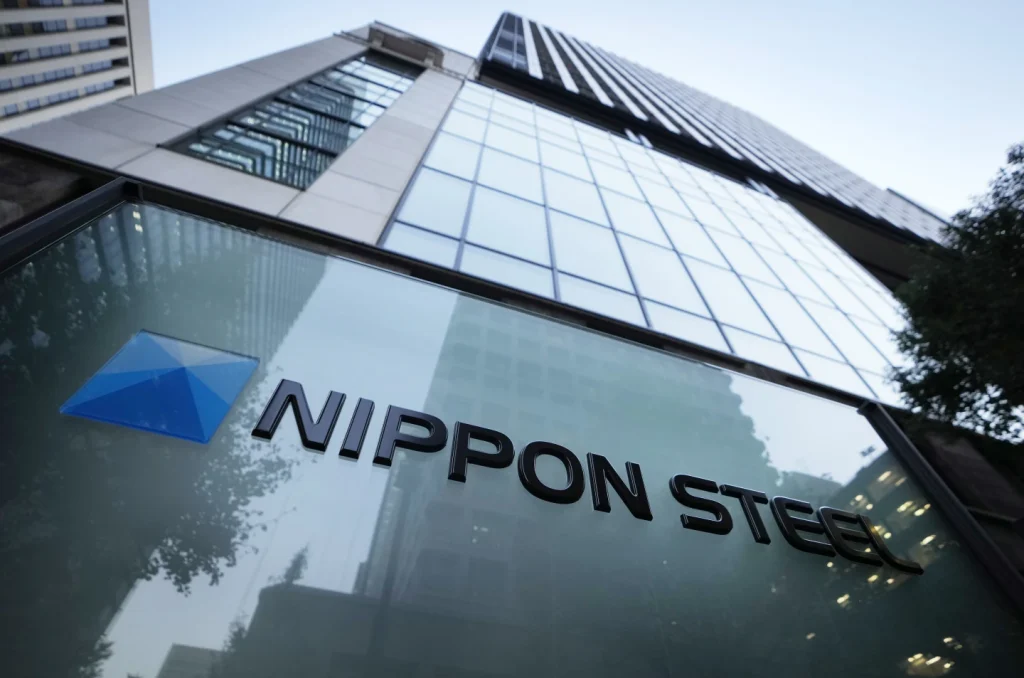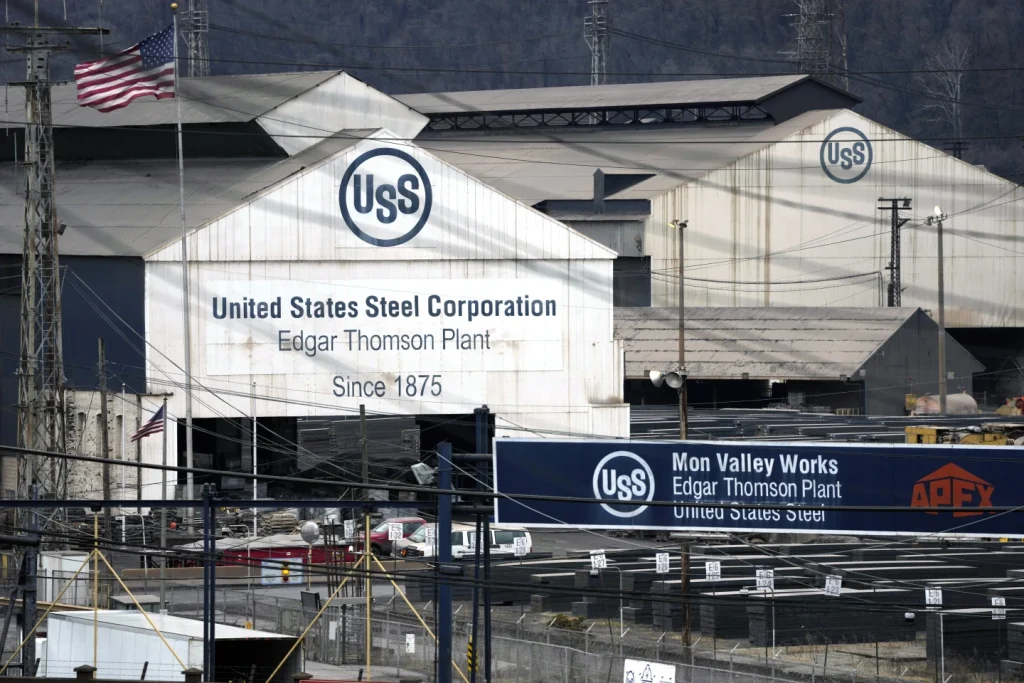The recent news of the planned acquisition of U.S. Steel by Japan’s Nippon Steel has sparked concerns and raised questions about the potential impact on national security and supply chain reliability.
President Joe Biden has expressed his belief that serious scrutiny is warranted for this transaction, and the White House has indicated that the Committee on Foreign Investment in the United States (CFIUS) will review the deal.
The acquisition of an iconic American-owned company by a foreign entity, even one from a close ally, has raised red flags and prompted the Biden administration to take a closer look at the potential implications.
Lael Brainard, the director of the National Economic Council, emphasized the need for careful investigation into the transaction, citing the importance of safeguarding national security and ensuring the reliability of the supply chain.
The Committee on Foreign Investment in the United States, a multi-agency panel responsible for assessing the national security risks associated with foreign investments in American companies, will play a crucial role in evaluating the proposed acquisition.
Brainard’s statement reflects the administration’s commitment to thoroughly examining the findings of the investigation and taking appropriate action if necessary.
The decision to subject the acquisition to rigorous scrutiny underscores the administration’s prioritization of national security and economic interests.
It also demonstrates the government’s recognition of the potential implications of foreign investments in critical industries such as steel production.
The Biden administration’s stance on this issue aligns with its broader efforts to protect and promote American interests in the global economic landscape.
The planned acquisition of U.S. Steel by Nippon Steel has not only raised concerns about national security but also sparked a debate about the broader implications for the U.S. steel industry.
The steelworkers union has voiced alarm over the transaction, highlighting the potential impact on domestic jobs and the competitive landscape of the industry.
These concerns further underscore the significance of conducting a thorough review of the proposed acquisition.
In light of the ongoing geopolitical and economic challenges facing the United States, the scrutiny of foreign investments in strategic industries is of paramount importance.
The Biden administration’s proactive approach to assessing the potential national security risks associated with the acquisition of U.S. Steel reflects a commitment to safeguarding the country’s economic and security interests.
It also sends a clear message about the administration’s determination to uphold a robust and strategic approach to foreign investment.
As the review process unfolds, it is essential for all relevant stakeholders to engage in constructive dialogue and contribute to the assessment of the proposed acquisition.
The involvement of economic and national security agency representatives in the CFIUS review underscores the need for a comprehensive and collaborative approach to evaluating the transaction.
By leveraging the expertise and insights of diverse stakeholders, the review process can yield a more informed and nuanced understanding of the potential implications of the acquisition.
In conclusion, the planned acquisition of U.S. Steel by Nippon Steel has prompted the Biden administration to prioritize a thorough and careful review of the transaction.
The administration’s commitment to national security and supply chain reliability underscores the importance of safeguarding American interests in the face of foreign investments.
As the review process unfolds, it is essential for all stakeholders to contribute to a comprehensive and informed assessment of the potential implications of the acquisition.
The outcome of this review will not only shape the future of the U.S. steel industry but also send a signal about the administration’s approach to foreign investment and national security.
The recent announcement of the approximately $14.1 billion all-cash deal between U.S. Steel and Nippon has sparked a wave of reactions from different stakeholders.
Under the terms of the deal, U.S. Steel will keep its name and headquarters in Pittsburgh, where it was founded over a century ago by J.P. Morgan and Andrew Carnegie.
The combined company will become one of the top three steel-producing companies in the world, according to 2022 figures from the World Steel Association.
However, the deal will have to go through the scrutiny of the Committee on Foreign Investment in the United States (CFIUS), which screens business deals between U.S. firms and foreign investors and can block sales or force parties to change the terms of an agreement for the purpose of protecting national security.
Chaired by Treasury Secretary Janet Yellen, the CFIUS has been given expanded powers through the Foreign Investment Risk Review Modernization Act (FIRRMA) in 2018 and an executive order from President Biden in September 2021, which expands the factors that the committee should consider when reviewing deals.
Such factors include the impact of the deal on the U.S. supply chain or risks to Americans’ sensitive personal data.
The CFIUS has on some occasions forced foreign companies to divest their ownership in American firms. For instance, in 2020, Beijing Kunlun, a Chinese mobile video game company, agreed to sell gay dating app Grindr after it received an order from CFIUS.
The announcement of the U.S. Steel-Nippon deal has not been well-received by some stakeholders. The United Steelworkers International, which endorsed Biden’s 2020 presidential campaign, swiftly opposed the transaction.
The union expressed disappointment that U.S. Steel chose to sell to a foreign-owned company instead of keeping the iconic American company domestically owned and operated.
The union was not consulted in advance of the announcement and remains open to working with U.S. Steel to find alternatives.
The union also urged government regulators to carefully scrutinize the acquisition and determine if the proposed transaction serves the national security interests of the United States and benefits workers.
Political allies of Biden in Pennsylvania, a presidential battleground state that is critical to his reelection campaign, also objected to the sale this week.
They released statements pressing Nippon to make commitments to keep U.S. Steel’s workers, plants, and headquarters in the state.
Some stakeholders have described the U.S. Steel-Nippon deal as the latest example of profit-hungry executives selling out American workers to a foreign company.
The debate over the deal highlights the tension between the need for foreign investment to boost economic growth and the need to protect national security and American jobs.
It remains to be seen how the CFIUS will assess the deal and what impact it will have on U.S. Steel, its workers, and the broader steel industry.
It is evident that the sale of U.S. Steel to a Japanese company has raised serious concerns among Democratic U.S. Senators, Bob Casey and John Fetterman.
Their apprehensions about the potential negative impact on the state and workers, as well as the national security issues, are valid and should be given due consideration.
Senator Fetterman’s strong opposition to the sale, especially considering his close proximity to U.S. Steel’s Edgar Thompson plant, reflects the sentiment of many who are worried about the implications of such a transaction.
The concern about a foreign company taking over a significant American steel company is understandable, as it raises questions about the future of the industry and the impact on the national economy.

Furthermore, the statement from a Treasury spokesperson regarding the Committee on Foreign Investment in the United States (CFIUS) underscores the seriousness of the situation.
The commitment to safeguarding U.S. national security and the confidentiality of their review process are crucial in addressing the potential risks associated with the sale.
It is imperative that the concerns raised by Senator Casey and Senator Fetterman, as well as the actions of CFIUS, are taken into account during the scrutiny of this sale.
The implications of such a significant transaction on the American steel industry and national security should not be overlooked.
Therefore, a thorough and transparent review process is essential to ensure that the best interests of the state, workers, and the country as a whole are protected.
